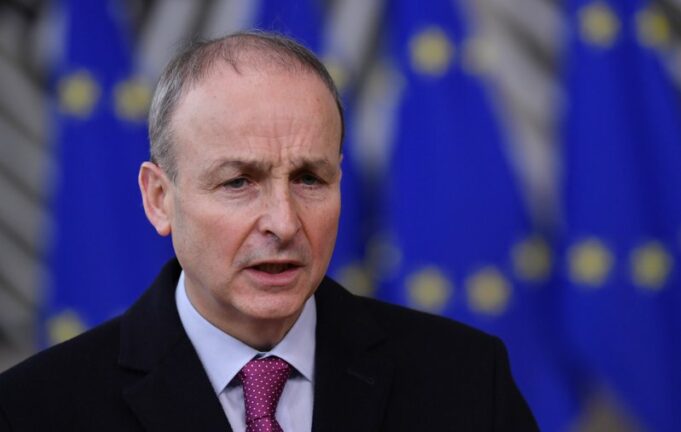LONDON—Ireland’s prime minster issued a formal state apology Jan. 13 to the thousands of unmarried women and their children who endured pain, shame and stigma at church-run institutions, saying his government was determined to start righting the country’s wrongs.
Prime Minister Micheal Martin’s apology came a day after the final report of an inquiry said 9,000 children died in 18 mother-and-baby homes—which housed women and girls who became pregnant outside marriage—during the 20th century. The inquiry was part of a process of reckoning in overwhelmingly Roman Catholic Ireland, where church-run institutions were often tied to a history of abuse.
Mr. Martin said Ireland must acknowledge the scandal as part of its national history and “show our deep remorse.” He apologized on behalf of his government for the “profound and generational wrong” visited upon mothers and their babies who ended up in the institutions.
“They should not have been there,” he said in Ireland’s parliament. “The state failed you, mothers and children in these homes.”
Mr. Martin said it was deeply distressing that authorities at the time knew about the very high mortality rate at the homes but did not appear to have intervened. The report said 15 percent of all children in the homes died from disease and infections like stomach flu, almost double the nationwide infant mortality rate.
Mr. Martin added: “We must learn the lesson that institutionalization creates power structures and abuses of power and must never again be an option for our country in any circumstance.”
Church-run homes in Ireland housed orphans, unmarried pregnant women and their babies for most of the 20th century. The mothers were abandoned by their families and hidden away out of shame, and many of the children were separated from their mothers for adoption.
The prime minister said, young women and their children had paid a heavy price for Ireland’s “perverse religious morality” in past decades.
“We had a completely warped attitude to sexuality and intimacy. Young mothers and their sons and daughters paid a terrible price for that dysfunction,” he said.
The report also said “the very high mortality rates were known to local and national authorities at the time and were recorded in official publications.”
But, the document went on, “there is no evidence of public concern being expressed about conditions in mother and baby homes or about the appalling mortality among the children born in these homes, even though many of the facts were in the public domain.”
The inquiry is part of a process of reckoning in overwhelmingly Roman Catholic Ireland with a history of abuses in church-run institutions, including the shunning and shaming of unwed mothers, many of whom were pressured into giving up babies for adoption.
Church-run homes in Ireland housed orphans, unmarried pregnant women and their babies for most of the 20th century. The institutions have been subject to intense public scrutiny since historian Catherine Corless in 2014 tracked down death certificates for nearly 800 children who died at the former Bon Secours Mother and Baby Home in Tuam, County Galway in western Ireland—but could only find a burial record for one child.
Investigators later found a mass grave containing remains of babies and young children in an underground sewage structure on the grounds of the home, which was run by an order of Catholic nuns and closed in 1961.
The commission of inquiry said about 56,000 unmarried mothers and about 57,000 children had lived in the homes it investigated, with the greatest number of admissions in the 1960s and early 1970s. The last of the homes did not shut until 1998.
“While mother and baby homes were not a peculiarly Irish phenomenon, the proportion of Irish unmarried mothers who were admitted to mother and baby homes or (state-run) county homes in the 20th century was probably the highest in the world,” the report said.
The commission said that the women’s lives “were blighted” by pregnancy outside marriage, and the responses of the father of their child, their immediate families and the wider community.
“The vast majority of children in the institutions were ‘illegitimate’ and, because of this, suffered discrimination for most of their lives,” the report added.
The prime minister said the report “presents all of Irish society with profound questions.”
“What has been described in this report wasn’t imposed on us by any foreign power,” he said. “We did this to ourselves, as a society.” (Compiled from Associated Press reports)













